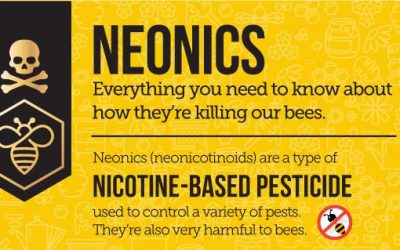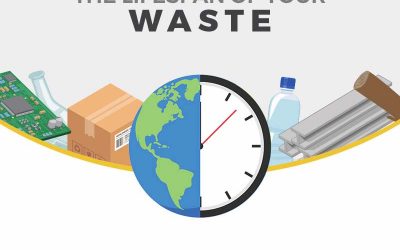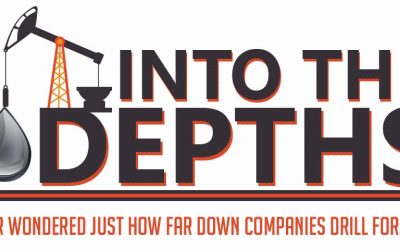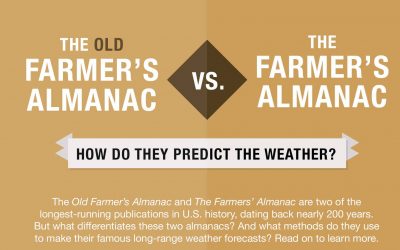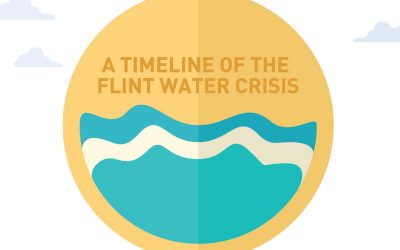Environmental Infographics
Clean and Green Hospitals
Looking after the environment has become a priority of many hospitals. Innovative buildings designed for healthcare are now also choosing to care about the surroundings as well as their patients. It’s not only good for the earth, but provides a more holistic approach to a patient’s health. Futuristic, state of the art facilities, are winning awards and making their mark on the architectural world.
Neonics – How They’re Killing Our Bees
Global bee populations have been plummeting for some time, and it’s no exaggeration to say that if it carries on the way it’s going, both bees and humans could be in a spot of trouble. There are various reasons why bee populations are falling, such as habitat destruction and disease, but one of the biggest causes is a pesticide known as Neonics.
Saving The Planet One Mile At A Time
With the whole motoring world doing what it can nowadays to create brand new cars that have as close to zero carbon footprint as possible, the folks at Select Car Leasing have put together this infographic to guide people who own slightly older cars so they can also cut down their carbon footprint by doing a few simple things.
USA’s Greenest Hospital
The following infographic takes a look at some of the most environmentally friendly hospitals in the USA. These innovative hospitals are choosing to look after the environment as well as their patients. With modern, state of the art facilities, eco-friendly hospitals are winning awards for their efforts.
The Lifespan of Your Waste
Most of us don’t think twice when we throw out our waste. But what actually happens to it once it has hit the bottom of the bin and gets taken away. This infographic shows you what bits of trash actually get recycled, compared to how much could be recycled. Plus how long that process is and basically, how long that can of Coke is going to be lying around for.
5 Ways Sports Leagues Can Save The Planet
How are sports leagues helping save the planet? They are making their own campaign in order to educate the people, especially the youth, about the importance of the environment. They have started to cut off the use of fuels, started to conserve water, and help increase recycling rates by using products with higher recycled content.
What Can We Learn From the Flint Water Crisis?
When Flint’s administrators switched to a local water source in 2014, it was soon followed by complaints from residents who cited health concerns about this water and, a few months later, high levels of lead were discovered in children living in the city. The whole affair was a sorry tale of buck-passing from figures in political authority and a flagrant disregard for the city’s residents.
Into The Depths – How Deep Do We Need To Go For Oil
In this infographic by Fuel Fighter, learn about the deepest on the planet – Z-44 Chayvo Well, and see comparisons that will demonstrate just how amazing this feat is. The infographic also explores the depth of this well in comparison to the earth’s core. And finally, it outlines just how much it costs to pull off the deepest ever oil extraction.
The Old Farmer’s Almanac vs. The Farmer’s Almanac
The Old Farmer’s Almanac and The Farmers’ Almanac have been predicting the weather since the time of George Washington. The almanac’s forecast weather as far as 18 months ahead. How accurate are these predictions? That depends who you ask. Meteorologists are skeptical of the almanacs’ weather forecasting methods, while others swear by them.
A Timeline of the Flint Water Crisis
Flint, Michigan, has been struggling to resolve its water issues for more than two years. The roots of the crisis go back as far as 2011, when the city of Flint was forced to find a cheaper water source as a result of a $25 million deficit in its budget. The Flint River was identified as a possible source for drinking water, but the decision to use the river’s water proved disastrous, and the fallout has been plaguing residents since 2014.
Clean and Green Hospitals
Looking after the environment has become a priority of many hospitals. Innovative buildings designed for healthcare are now also choosing to care about the surroundings as well as their patients. It’s not only good for the earth, but provides a more holistic approach to a patient’s health. Futuristic, state of the art facilities, are winning awards and making their mark on the architectural world.
Neonics – How They’re Killing Our Bees
Global bee populations have been plummeting for some time, and it’s no exaggeration to say that if it carries on the way it’s going, both bees and humans could be in a spot of trouble. There are various reasons why bee populations are falling, such as habitat destruction and disease, but one of the biggest causes is a pesticide known as Neonics.
Saving The Planet One Mile At A Time
With the whole motoring world doing what it can nowadays to create brand new cars that have as close to zero carbon footprint as possible, the folks at Select Car Leasing have put together this infographic to guide people who own slightly older cars so they can also cut down their carbon footprint by doing a few simple things.
USA’s Greenest Hospital
The following infographic takes a look at some of the most environmentally friendly hospitals in the USA. These innovative hospitals are choosing to look after the environment as well as their patients. With modern, state of the art facilities, eco-friendly hospitals are winning awards for their efforts.
The Lifespan of Your Waste
Most of us don’t think twice when we throw out our waste. But what actually happens to it once it has hit the bottom of the bin and gets taken away. This infographic shows you what bits of trash actually get recycled, compared to how much could be recycled. Plus how long that process is and basically, how long that can of Coke is going to be lying around for.
5 Ways Sports Leagues Can Save The Planet
How are sports leagues helping save the planet? They are making their own campaign in order to educate the people, especially the youth, about the importance of the environment. They have started to cut off the use of fuels, started to conserve water, and help increase recycling rates by using products with higher recycled content.
What Can We Learn From the Flint Water Crisis?
When Flint’s administrators switched to a local water source in 2014, it was soon followed by complaints from residents who cited health concerns about this water and, a few months later, high levels of lead were discovered in children living in the city. The whole affair was a sorry tale of buck-passing from figures in political authority and a flagrant disregard for the city’s residents.
Into The Depths – How Deep Do We Need To Go For Oil
In this infographic by Fuel Fighter, learn about the deepest on the planet – Z-44 Chayvo Well, and see comparisons that will demonstrate just how amazing this feat is. The infographic also explores the depth of this well in comparison to the earth’s core. And finally, it outlines just how much it costs to pull off the deepest ever oil extraction.
The Old Farmer’s Almanac vs. The Farmer’s Almanac
The Old Farmer’s Almanac and The Farmers’ Almanac have been predicting the weather since the time of George Washington. The almanac’s forecast weather as far as 18 months ahead. How accurate are these predictions? That depends who you ask. Meteorologists are skeptical of the almanacs’ weather forecasting methods, while others swear by them.
A Timeline of the Flint Water Crisis
Flint, Michigan, has been struggling to resolve its water issues for more than two years. The roots of the crisis go back as far as 2011, when the city of Flint was forced to find a cheaper water source as a result of a $25 million deficit in its budget. The Flint River was identified as a possible source for drinking water, but the decision to use the river’s water proved disastrous, and the fallout has been plaguing residents since 2014.
Search 12,000+ Infographics!
Partners
Browse Archives By Category
Animated Infographics
Business Infographics
Career & Jobs Infographics
Education Infographics
Entertainment Industry Infographics
Environmental Infographics
Finance & Money Infographics
Food & Drink Infographics
Health Infographics
Historical Infographics
Home & Garden Infographics
Internet Infographics
Law and Legal Infographics
Lifestyle Infographics
Marketing Infographics
Offbeat Infographics
Parenting Infographics
Pets & Animals Infographics
Political Infographics
Shopping Infographics
Sports and Athletic Infographics
Technology Infographics
Transportation Infographics
Travel Infographics
Video Infographics

